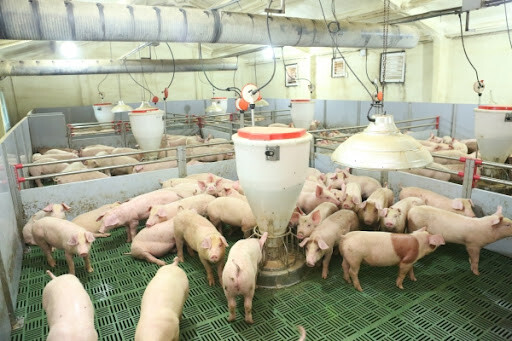
The recent tragic suicide of a pig farmer in Yeongcheon, Gyeongbuk, South Korea, has shone a harsh spotlight on the precarious financial situation of many pig farms in the country. The farmer, overwhelmed by severe financial difficulties, including a cut-off in feed supply, took their own life.
Following this heartbreaking incident, many pig farmers have spoken out about the dire conditions they are facing. They have expressed concerns that a significant number of farms are on the brink of collapse, their fates largely determined by feed suppliers. One farmer from Jeollabuk-do even claimed that nearly half of the farms in their county were in a precarious state.
While it is difficult to obtain precise data on the number of failing pig farms, experts have suggested using productivity as a measure to estimate the scale of the problem. They propose classifying farms with productivity in the bottom 30% as "marginal farms" and those in the 30-50% range as "at-risk farms."
These farms, often struggling with low productivity, face higher production costs, making them more susceptible to financial losses. This leads to a vicious cycle of increasing debt, higher production costs, and further losses. As a result, it is estimated that at least 30% of pig farms in South Korea are so heavily indebted that they have little control over their operations.
Compounding the issue are unforeseen challenges such as disease outbreaks, delayed recovery, and excessive debt from facility investments, often coinciding with low pork prices. These factors can quickly drive farms into financial ruin.
Furthermore, the standards for defining marginal farms are constantly rising, exacerbating the problem. According to the Korean Swine Association, the bottom 30% of farms have a MSY (Marketing of Sows Yearly) of around 14, while the median is 17. However, with increasing production costs and low pork prices, even farms currently meeting the median are facing uncertain futures.
This has led to concerns that a mass exodus of pig farmers could destabilize the domestic swine industry. Feed costs are a significant portion of production expenses, and many farms rely heavily on feed suppliers for credit. If these suppliers were to cut off credit to struggling farms, it could lead to a rapid collapse of the industry.
"It's a double-edged sword," said one swine consultant. "On one hand, feed companies have a stranglehold on these farms. But on the other, it's thanks to feed companies that many marginal farms are still surviving."
Unfortunately, there are few easy solutions to this complex problem. While government support for improving productivity and providing financial assistance is needed, it is often insufficient. Similarly, selling the farm is not a viable option for many, as it would leave them without a means of support.
The swine industry is facing a critical juncture. It is imperative that industry stakeholders come together to find sustainable solutions to this pressing issue.
[Copyright (c) Global Economic Times. All Rights Reserved.]



























